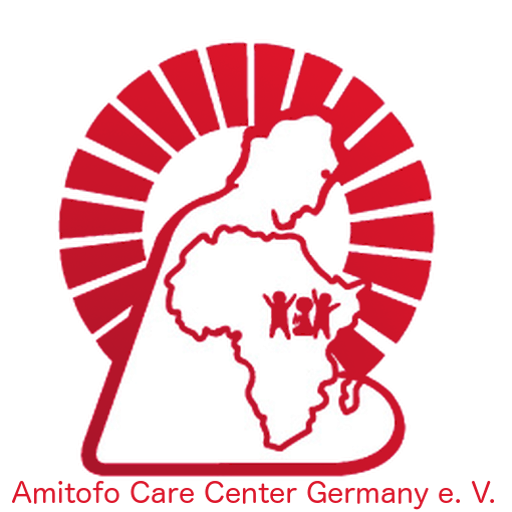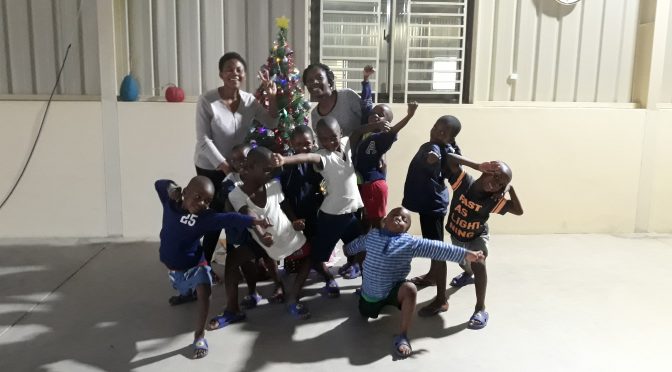Lecture on 18.02.2018 for the New Year Celebration
at the Amitofo Care Centre Germany e.V.
In Düsseldorf
2 Months at Amitofo Care Centre of Namibia (abbrv. ACC Namibia or Centre)
Report by Beatrix von Eycken
Arrival
In May 2017, I met Bruce Tai, the Germany representative of Amitofo Care Centre, at the Vesak Festival of the Dhamadayada Association in Bochum. He described the work of ACC Namibia in Africa. Exciting. So exciting that more meetings followed, and I finally left for Okahandja, Namibia, on September 21, 2017 to support the organization for 2.5 months on site.
Min Min Chen, the director of the local Care Centre, with whom I had exchanged in advance, picked me up at the airport. I arrived at 6:30 in the morning, Min left even earlier from the centre to come to see me. Both of us felt a little hungry after a warm welcome and thus decided to take a small breakfast at the airport. Psychologically I had not really arrived in Namibia when she told me that she wanted me to do a human resources database. Mentally I was prepared for potatoes peeling and bed-making. That then the power in the entire airport broke down, I noticed only marginally. Everything had to be a good sign.
Finally, we made our way to the Centre. The ride takes about 90 minutes and you almost only see savanna. We drove by Okahandja, the nearest town with 26,000 inhabitants. 17 km later, the curved roofs of the Centre appear in the savannah. It quickly became clear that I had wrong imagination about the size of the site. It is huge!
We arrived at noon. Rest time for employees and children. Silence and warmth were the first thing I noticed. Now and then you hear a passing car. Otherwise only cicadas and birds. It took me a few days to notice how loud cicadas and birds are. When I arrived, I just noticed the absence of the familiar sounds of cars and planes.
At the end of 2017 on the premises, there will be a warehouse, the dining hall, which houses the administration, the Kung-Fu hall, the temple, the rooms for the staff, the school, children and nannies. At the end of the property there is a solar system, with which the centre is sustainably and independently supplied with electricity.
I am brought to my room: bed, cupboard, table, chair. Generous, bright, practical. On the first floor of the 2-story houses live women, men on the ground floor (because of the snakes and the possible burglars). Couples live in another building, where they have more space.
Water is scarce, Min told me on the way to the Centre. I did not dare to ask what that means. I am experiencing it now: It means that you only have water for 1 hour a day. From 19 – 20 o’clock. The hour is used to fill all possible containers with water. This stock will be used in the next 23 hours for cleaning, washing, toilet flushing etc. However, filtered drinking water is always available to everyone.
After a short break in my room, I made my way towards the administration. Without a shower, I was shown around and met my local and Asian colleagues and I am pleased about the friendly and attentive reception.
Read Page 2: The Daily Routine
Page 3: The Children at ACC Namibia: The Admission Process



